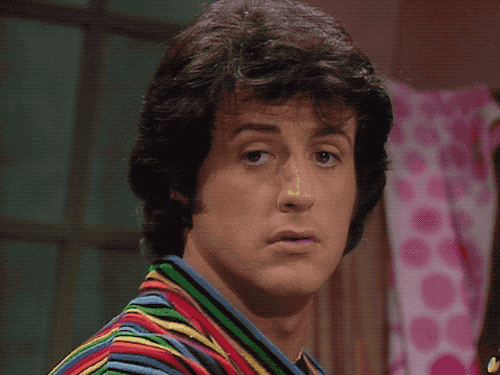This, Sony and Lying Ryan was worried for a reason.Maybe... but considering how scared Sony got, I'd think it's a much bigger deal than what playstation fans care to admit... or maybe Sony miscalculated the danger in the acquisition idk
You are using an out of date browser. It may not display this or other websites correctly.
You should upgrade or use an alternative browser.
You should upgrade or use an alternative browser.
I dare say it will have an impact. You can guarantee they will do COD bundles going forward which will shift units. Plus the TV ads will now have an Xbox logo at the start and ending for the first time in over 10 years.
Change the console wars? Probably not. Change the gaming landscape as we know it? Absolutely. A competitive Microsoft is good for the entire industry. We've never been here before. I'm here for it though. Gonna be cool to witness.Am I the only one who thinks this will have a lot less impact than most people think?
It will help MS sell tons more Game Pass subs and probably some hardware. They'll also own a cash cow, which is a big win. Meanwhile, team blue can go about their lives without any real change. They can buy COD and other games and play them on PS hardware.
It is a smart move by MS and will help them, but I don't see it completely changing the console wars.
How does this make them competitive? 90% of what they bought is either unrelated to consoles or staying multiplatform.Change the console wars? Probably not. Change the gaming landscape as we know it? Absolutely. A competitive Microsoft is good for the entire industry. We've never been here before. I'm here for it though. Gonna be cool to witness.
So? That helped so much in the past that Xbox just threw it away.I dare say it will have an impact. You can guarantee they will do COD bundles going forward which will shift units. Plus the TV ads will now have an Xbox logo at the start and ending for the first time in over 10 years.
Wasn’t there some quote from Mattrick about how they were stepping away from major 3rd party partnerships to focus on first party, and basically shat the bed with thatSo? That helped so much in the past that Xbox just threw it away.
December 6th 2023, mark your calendars for a potential new Zoom trial
/cloudfront-us-east-2.images.arcpublishing.com/reuters/WCQ6WTBAIRNX3MVU3PMBPF2GHA.jpg)
 www.reuters.com
www.reuters.com
Champagne corks may have been popping in Redmond, Washington, last week after Microsoft closed its $69 billion acquisition of video game maker Activision Blizzard but the tech giant's fight with U.S. antitrust regulators isn't over yet.
Although the Federal Trade Commission to date has lost every attempt to halt the merger, the antitrust enforcer isn't stepping down. Agency lawyers are set to appear before a federal appeals court in December to argue the deal is anticompetitive, while also prepping for an in-house administrative trial further down the road.
In 2008, the FTC scored a narrow appellate win in challenging Whole Foods' $565 million acquisition of rival grocer Wild Oats -- a decision that came nearly a year after the two supermarket chains had consummated their merger, and one that forced Whole Foods into a costly settlement.
Could something similar happen to Microsoft and Activision?
Probably not, said now-retired Dechert partner Paul Denis, who was Whole Foods' lead lawyer.
To be sure, the FTC litigates just a handful of merger cases each year, and each one plays out differently.
The Whole Foods case also had unique appellate quirks that are unlikely to be duplicated -- but procedurally, the Microsoft case has been unfolding in a strikingly similar way.
The Microsoft challenge "feels very familiar," Denis told me. "The FTC is clearly trying to plow some new ground -- as they attempted with Whole Foods and now with Microsoft" in pursuing aggressive theories of antitrust enforcement.
A Microsoft spokesperson declined to comment directly on the litigation, but President Brad Smith in a blog post noted the company has garnered friend-of-the-court support from antitrust scholars, economists and former government officials, as well as business and labor groups – "an almost unprecedented range of diverse parties," Smith wrote.
The agency is undeterred. "The FTC continues to believe this deal is a threat to competition,"spokesperson Victoria Graham said via email. "We remain focused on the federal appeal process despite Microsoft and Activision closing their deal."
The FTC asserts that Microsoft's acquisition of Activision, which makes the wildly popular "Call of Duty" series, would enable the combined company "to suppress competitors to its Xbox gaming consoles and its rapidly growing subscription and cloud-gaming business."
As it did with Whole Foods 16 years ago, the FTC filed what's known as a Part 3 administrative complaint to block the merger, arguing the tie-up would stifle competition and harm consumers.
Agency lawyers in both cases also sued the companies in federal court, seeking a preliminary injunction to stop the deals from being consummated pending resolution of the slower-moving administrative action.
And in both cases, the FTC was soundly defeated in district court.
In the Whole Foods case, the FTC unsuccessfully argued that the grocer, which at the time had 194 stores, would gain a near-monopoly in the "premium, natural and organic supermarket" category by acquiring 110 stores from Wild Oats.
The FTC in each instance appealed its losses, but failed to win emergency injunctions from higher courts that would freeze the mergers while litigation was pending.
Both Microsoft and Whole Foods then went on to close their deals, apparently gambling the FTC was a paper tiger and they'd live happily ever after in post-merger bliss.
For Whole Foods, it didn't quite work out that way.
The original trio of D.C. Circuit judges that rebuked the FTC's bid for an emergency stay had changed, with Judge Janice Rogers Brown replacing Judge David Sentelle.
The substitution proved fateful, Denis said. In a surprise move, the court in a 2-1 decision remanded the case for further consideration, with Brown writing that the lower court judge didn't focus enough on how the merger might affect Whole Foods' "core" customers.
At that point, it made little business sense for Whole Foods to keep fighting, not with the threat of drawn-out a Part 3 trial hanging over its head – a process which by statute is only available to the FTC, not the Justice Department. The two agencies share responsibility for antitrust enforcement, but DOJ is confined to litigating in federal court -- but that's another column.
"Whole Foods ended up having to settle," Denis said, agreeing in 2009 to divest 32 stores and the Wild Oats brand name.
It was a possibility the company had "war-gamed out" ahead of time, he said. As a horizontal merger between direct competitors, such divestitures are the usual fix to mollify regulators.
The Microsoft-Activision case is a vertical merger, however, where the companies operate in the same industry but provide different services. That can make it harder to predict what concessions would satisfy regulators, Denis said.
As my Reuters colleagues reported, Microsoft agreed to sell the non-European streaming rights to Activision's games to Ubisoft Entertainment to assuage concerns by Britain's Competition and Markets Authority, which approved the merger on Oct. 13.
The FTC said it's still weighing these concessions.
The new Ubisoft agreement, agency spokesperson Graham said, "presents a whole new facet to the merger that will affect American consumers, which the FTC will assess as part of its ongoing administrative proceeding."
/cloudfront-us-east-2.images.arcpublishing.com/reuters/WCQ6WTBAIRNX3MVU3PMBPF2GHA.jpg)
Microsoft-Activision is a done deal – but what if the FTC still wins? Ask Whole Foods.
Champagne corks may have been popping in Redmond, Washington, last week after Microsoft closed its $69 billion acquisition of video game maker Activision Blizzard , but the tech giant’s fight with U.S. antitrust regulators isn’t over yet.
Champagne corks may have been popping in Redmond, Washington, last week after Microsoft closed its $69 billion acquisition of video game maker Activision Blizzard but the tech giant's fight with U.S. antitrust regulators isn't over yet.
Although the Federal Trade Commission to date has lost every attempt to halt the merger, the antitrust enforcer isn't stepping down. Agency lawyers are set to appear before a federal appeals court in December to argue the deal is anticompetitive, while also prepping for an in-house administrative trial further down the road.
In 2008, the FTC scored a narrow appellate win in challenging Whole Foods' $565 million acquisition of rival grocer Wild Oats -- a decision that came nearly a year after the two supermarket chains had consummated their merger, and one that forced Whole Foods into a costly settlement.
Could something similar happen to Microsoft and Activision?
Probably not, said now-retired Dechert partner Paul Denis, who was Whole Foods' lead lawyer.
To be sure, the FTC litigates just a handful of merger cases each year, and each one plays out differently.
The Whole Foods case also had unique appellate quirks that are unlikely to be duplicated -- but procedurally, the Microsoft case has been unfolding in a strikingly similar way.
The Microsoft challenge "feels very familiar," Denis told me. "The FTC is clearly trying to plow some new ground -- as they attempted with Whole Foods and now with Microsoft" in pursuing aggressive theories of antitrust enforcement.
A Microsoft spokesperson declined to comment directly on the litigation, but President Brad Smith in a blog post noted the company has garnered friend-of-the-court support from antitrust scholars, economists and former government officials, as well as business and labor groups – "an almost unprecedented range of diverse parties," Smith wrote.
The agency is undeterred. "The FTC continues to believe this deal is a threat to competition,"spokesperson Victoria Graham said via email. "We remain focused on the federal appeal process despite Microsoft and Activision closing their deal."
The FTC asserts that Microsoft's acquisition of Activision, which makes the wildly popular "Call of Duty" series, would enable the combined company "to suppress competitors to its Xbox gaming consoles and its rapidly growing subscription and cloud-gaming business."
As it did with Whole Foods 16 years ago, the FTC filed what's known as a Part 3 administrative complaint to block the merger, arguing the tie-up would stifle competition and harm consumers.
Agency lawyers in both cases also sued the companies in federal court, seeking a preliminary injunction to stop the deals from being consummated pending resolution of the slower-moving administrative action.
And in both cases, the FTC was soundly defeated in district court.
In the Whole Foods case, the FTC unsuccessfully argued that the grocer, which at the time had 194 stores, would gain a near-monopoly in the "premium, natural and organic supermarket" category by acquiring 110 stores from Wild Oats.
The FTC in each instance appealed its losses, but failed to win emergency injunctions from higher courts that would freeze the mergers while litigation was pending.
Both Microsoft and Whole Foods then went on to close their deals, apparently gambling the FTC was a paper tiger and they'd live happily ever after in post-merger bliss.
For Whole Foods, it didn't quite work out that way.
The original trio of D.C. Circuit judges that rebuked the FTC's bid for an emergency stay had changed, with Judge Janice Rogers Brown replacing Judge David Sentelle.
The substitution proved fateful, Denis said. In a surprise move, the court in a 2-1 decision remanded the case for further consideration, with Brown writing that the lower court judge didn't focus enough on how the merger might affect Whole Foods' "core" customers.
At that point, it made little business sense for Whole Foods to keep fighting, not with the threat of drawn-out a Part 3 trial hanging over its head – a process which by statute is only available to the FTC, not the Justice Department. The two agencies share responsibility for antitrust enforcement, but DOJ is confined to litigating in federal court -- but that's another column.
"Whole Foods ended up having to settle," Denis said, agreeing in 2009 to divest 32 stores and the Wild Oats brand name.
It was a possibility the company had "war-gamed out" ahead of time, he said. As a horizontal merger between direct competitors, such divestitures are the usual fix to mollify regulators.
The Microsoft-Activision case is a vertical merger, however, where the companies operate in the same industry but provide different services. That can make it harder to predict what concessions would satisfy regulators, Denis said.
As my Reuters colleagues reported, Microsoft agreed to sell the non-European streaming rights to Activision's games to Ubisoft Entertainment to assuage concerns by Britain's Competition and Markets Authority, which approved the merger on Oct. 13.
The FTC said it's still weighing these concessions.
The new Ubisoft agreement, agency spokesperson Graham said, "presents a whole new facet to the merger that will affect American consumers, which the FTC will assess as part of its ongoing administrative proceeding."
The fact they were so willing to walk away says it all.Wasn’t there some quote from Mattrick about how they were stepping away from major 3rd party partnerships to focus on first party, and basically shat the bed with that
To me, this gives MS a huge pile of money, but they already had way more money than Sony.
I just don't see a massive change. Do a few PS only types maybe decide to get both consoles now? I don't see some massive PS fanboy exodus. Again, I was a long time Xbox fan who finally went multiplat. Some of them maybe do that, but I don't see it being a massive shift.
I just don't see a massive change. Do a few PS only types maybe decide to get both consoles now? I don't see some massive PS fanboy exodus. Again, I was a long time Xbox fan who finally went multiplat. Some of them maybe do that, but I don't see it being a massive shift.
Forget consoles. Nothing Xbox is doing is about consoles.To me, this gives MS a huge pile of money, but they already had way more money than Sony.
I just don't see a massive change. Do a few PS only types maybe decide to get both consoles now? I don't see some massive PS fanboy exodus. Again, I was a long time Xbox fan who finally went multiplat. Some of them maybe do that, but I don't see it being a massive shift.
It would have been a better strategy if they didn't lose/close:Wasn’t there some quote from Mattrick about how they were stepping away from major 3rd party partnerships to focus on first party, and basically shat the bed with that
Bungie
Lionhead
Ensemble
FASA
Digital Anvil
Bizarre Creations
The amount of studios they have today is much higher. If they play their cards right, they can dominate the videogame release calendar, maintain a fairly continuous hype cycle, keep their game releases in the mindshare perpetually and when nature takes it's course, grow their console market share. I'd say at this point they can't lose, but I can't, because their management and development values seem to be nebulous.
From the lawyer,
A few days ago, Mlex published a report about how the EC was frustrated with how the whole situation has been resolved.
For starters, the EC doesn’t understand earlier criticism of the EU remedy by the CMA seeing the solution finally accepted with the Ubisoft agreement. They feel that it’s more a license agreement and not a divestment. Therefore, a behavioural remedy like the one approved by the EC.
At the same time, the EC believes that other authorities have been left in an awkward position because many don’t consider the new proposition a “new deal”. But it was reviewed like that by the CMA.
Therefore, many wonder if companies in the future may try to invoke the "new deal" exception to circumvent vetos. And this could open a can of worms as basic but complex as "What is a new deal?"
There is also a lot of talk about “hybrid deals” (the CMA accepting more flexible remedies at later stages) or if the Australian ACCC failing to rule is a sign of weakness.
As you can see, the consequences of this whole story are just starting to develop.
A few days ago, Mlex published a report about how the EC was frustrated with how the whole situation has been resolved.
For starters, the EC doesn’t understand earlier criticism of the EU remedy by the CMA seeing the solution finally accepted with the Ubisoft agreement. They feel that it’s more a license agreement and not a divestment. Therefore, a behavioural remedy like the one approved by the EC.
At the same time, the EC believes that other authorities have been left in an awkward position because many don’t consider the new proposition a “new deal”. But it was reviewed like that by the CMA.
Therefore, many wonder if companies in the future may try to invoke the "new deal" exception to circumvent vetos. And this could open a can of worms as basic but complex as "What is a new deal?"
There is also a lot of talk about “hybrid deals” (the CMA accepting more flexible remedies at later stages) or if the Australian ACCC failing to rule is a sign of weakness.
As you can see, the consequences of this whole story are just starting to develop.
From the lawyer,
I'll start adding every week the documents leaked or shared during the FTC PI and the 9th Circuit appeal and highlights from them.
Documents from the original process: June 22nd - June 29th 2023
1.- From the docket entries, the EXHIBIT LISTS from the FTC by checking the name of the document or subject of the email; regarding acquisitions:
- The acquisition of Double Fine | Project alias unknown: requested on April 4th 2019; announced on June 9th 2019.
- The acquisition of Square Enix | Project Phoenix: preliminary discussion on October 31st 2019; requested on January 9th 2020.
- The acquisition of Warner Bros Interactive | Project alias unknown: actively explored since at least July 2020.
- The acquisition of Zenimax Media | Project Atom: requested in mid/late July 2020; announced on September 21st 2020, completed on March 9th 2021.
- The acquisition of SEGA | Project alias unknown: requested on November 10th, 2020.
- Unknown "potential acquisition" (those are the terms used on the subject of the email) discussed on March 22nd 2021.
- Unknown "potential acquisition" (those are the terms used on the subject of the email) discussed on April 21st 2021.
- Project Neutrino: discussed on April 28th 2021; again on February 15th 2022 | Likely related to cloud gaming, not an acquisition.
- Unknown "potential acquisition" (those are the terms used on the subject of the email) discussed on June 17th 2021.
- Unknown "potential acquisition" (those are the terms used on the subject of the email) discussed on June 18th 2021.
- The acquisition of Electronic Arts? | Project alias unknown: a mail from Phil Spencer to Satya Nadella (CEO) and Amy Hood (CFO) called "EA move" on June 23rd 2021.
| Project alias unknown: a mail from Phil Spencer to Satya Nadella (CEO) and Amy Hood (CFO) called "EA move" on June 23rd 2021.
- The acquisition of Zynga | Project Zipline: discussed since at least August 17th 2021 with this name; likely requested on October 2021.
- Unknown "potential acquisition" (those are the terms used on the subject of the email) discussed on October 5th 2021.
- Unknown "potential acquisition" (those are the terms used on the subject of the email) discussed on November 12th 2021.
- The acquisition of Activision Blizzard King | Project Denali: requested on mid November 2021; announced on January 18th 2022; completed on October 13th 2023.
- Unknown "potential acquisition" (those are the terms used on the subject of the email) discussed on January 14th 2022.
- Project Singularity: discussed on June 17th 2022 | Likely related to cloud gaming, not an acquisition.
2.- Exhibit PX1065 | Request for the acquisition of SEGA in November 10th 2020.
The documents attached to exhibit PX7011 by mistake (the Phil Spencer hearing) included a non-redacted version of the document.
A) The document about the possible acquisition of SEGA (November 2020), clearly states the "PrioritisingAcquisition Targets":
To help inform our next strategic acquisition target, we have identified top priority segment and geographic combinations for Xbox, in order:
After closing the ABK acquisition, I guess that PC in North America and Europe (CoD + Blizzard) and Mobile in North America and Europe (King, CoD Mobile and mobile games from Blizzard) would be pretty much done.
Therefore, it looks like the next acquisition target should be for:
I guess that the acquisition of Zenimax (September 2020) could have been enough to cover the PC in North America and Europe priority, and that's why the focus went to Mobile in North America and Europe with ABK. However, the possible acquisition of SEGA was discussed in November 2020, two months after the Zenimax acquisition had been announced, and PC in North America and Europe still was a priority. So, who knows if the acquisition of ABK would be enough to cover that priority.
B) The document about the potential acquisition of SEGA clearly states how they would operate:
Subject to diligence and discussions with Sega's leadership team, we expect Sega to report to Matt Booty with the following operating principles:
- We will continue to develop and sell all acquired games and franchises on all relevant platforms (e.g., Android, iOS, PlayStation, Steam, Switch, Windows, Xbox, etc.)
- We will bring previously exclusive to PlayStation and Nintendo titles to Xbox and launch future titles on Xbox in addition to other relevant platforms as rights permit.
- We will launch all acquired games and franchises with subscription exclusivity into Xbox Game Pass on console, PC, and cloud; future releases will ship into Xbox Game Pass on a day-and- date basis.
C) Regarding the third top priority segment and geographic combination:
While Sega represents a meaningful opportunity for Gaming, we are cognizant of the following strategic and operating risks:
- Deal execution: It is unclear whether Sega Sammy has appetite to divest their gaming studios, which have represented roughly half of their revenue and operating income. Deal execution would likely be particularly complex.
- Integration risk: Microsoft has limited experience with Japanese acquisitions. Our preliminary integration plan is intended to preserve a degree of cultural & operating autonomy for Sega by having its Consumer division leadership report to Matt Booty. However, there is a risk that this plan may not completely account for cultural and/or other integration challenges.
It sounds like MS was really interested in a Japanese, Korean or even Chinese publisher (while talking about comparable tradings to SEGA, companies like Netmarble, IGG or GungHo are mentioned) but they knew that there is a cultural risk if the acquisition happens and that the limited experiences of MS acquiring companies in Asia could be problematic.
In addition to that, MS states that the company has assets that would be of no value for them (pachinko, resorts, etc).
I'll start adding every week the documents leaked or shared during the FTC PI and the 9th Circuit appeal and highlights from them.
Documents from the original process: June 22nd - June 29th 2023
1.- From the docket entries, the EXHIBIT LISTS from the FTC by checking the name of the document or subject of the email; regarding acquisitions:
- The acquisition of Double Fine | Project alias unknown: requested on April 4th 2019; announced on June 9th 2019.
- The acquisition of Square Enix | Project Phoenix: preliminary discussion on October 31st 2019; requested on January 9th 2020.
- The acquisition of Warner Bros Interactive | Project alias unknown: actively explored since at least July 2020.
- The acquisition of Zenimax Media | Project Atom: requested in mid/late July 2020; announced on September 21st 2020, completed on March 9th 2021.
- The acquisition of SEGA | Project alias unknown: requested on November 10th, 2020.
- Unknown "potential acquisition" (those are the terms used on the subject of the email) discussed on March 22nd 2021.
- Unknown "potential acquisition" (those are the terms used on the subject of the email) discussed on April 21st 2021.
- Project Neutrino: discussed on April 28th 2021; again on February 15th 2022 | Likely related to cloud gaming, not an acquisition.
- Unknown "potential acquisition" (those are the terms used on the subject of the email) discussed on June 17th 2021.
- Unknown "potential acquisition" (those are the terms used on the subject of the email) discussed on June 18th 2021.
- The acquisition of Electronic Arts?
- The acquisition of Zynga | Project Zipline: discussed since at least August 17th 2021 with this name; likely requested on October 2021.
- Unknown "potential acquisition" (those are the terms used on the subject of the email) discussed on October 5th 2021.
- Unknown "potential acquisition" (those are the terms used on the subject of the email) discussed on November 12th 2021.
- The acquisition of Activision Blizzard King | Project Denali: requested on mid November 2021; announced on January 18th 2022; completed on October 13th 2023.
- Unknown "potential acquisition" (those are the terms used on the subject of the email) discussed on January 14th 2022.
- Project Singularity: discussed on June 17th 2022 | Likely related to cloud gaming, not an acquisition.
2.- Exhibit PX1065 | Request for the acquisition of SEGA in November 10th 2020.
The documents attached to exhibit PX7011 by mistake (the Phil Spencer hearing) included a non-redacted version of the document.
A) The document about the possible acquisition of SEGA (November 2020), clearly states the "PrioritisingAcquisition Targets":
To help inform our next strategic acquisition target, we have identified top priority segment and geographic combinations for Xbox, in order:
- PC in North America and Europe
- Mobile in North America and Europe
- Console and PC in APAC (Asia - Pacific)
After closing the ABK acquisition, I guess that PC in North America and Europe (CoD + Blizzard) and Mobile in North America and Europe (King, CoD Mobile and mobile games from Blizzard) would be pretty much done.
Therefore, it looks like the next acquisition target should be for:
- Console and PC in APAC (Asia - Pacific)
I guess that the acquisition of Zenimax (September 2020) could have been enough to cover the PC in North America and Europe priority, and that's why the focus went to Mobile in North America and Europe with ABK. However, the possible acquisition of SEGA was discussed in November 2020, two months after the Zenimax acquisition had been announced, and PC in North America and Europe still was a priority. So, who knows if the acquisition of ABK would be enough to cover that priority.
B) The document about the potential acquisition of SEGA clearly states how they would operate:
Subject to diligence and discussions with Sega's leadership team, we expect Sega to report to Matt Booty with the following operating principles:
- We will continue to develop and sell all acquired games and franchises on all relevant platforms (e.g., Android, iOS, PlayStation, Steam, Switch, Windows, Xbox, etc.)
- We will bring previously exclusive to PlayStation and Nintendo titles to Xbox and launch future titles on Xbox in addition to other relevant platforms as rights permit.
- We will launch all acquired games and franchises with subscription exclusivity into Xbox Game Pass on console, PC, and cloud; future releases will ship into Xbox Game Pass on a day-and- date basis.
C) Regarding the third top priority segment and geographic combination:
- Console and PC in APAC (Asia - Pacific)
While Sega represents a meaningful opportunity for Gaming, we are cognizant of the following strategic and operating risks:
- Deal execution: It is unclear whether Sega Sammy has appetite to divest their gaming studios, which have represented roughly half of their revenue and operating income. Deal execution would likely be particularly complex.
- Integration risk: Microsoft has limited experience with Japanese acquisitions. Our preliminary integration plan is intended to preserve a degree of cultural & operating autonomy for Sega by having its Consumer division leadership report to Matt Booty. However, there is a risk that this plan may not completely account for cultural and/or other integration challenges.
It sounds like MS was really interested in a Japanese, Korean or even Chinese publisher (while talking about comparable tradings to SEGA, companies like Netmarble, IGG or GungHo are mentioned) but they knew that there is a cultural risk if the acquisition happens and that the limited experiences of MS acquiring companies in Asia could be problematic.
In addition to that, MS states that the company has assets that would be of no value for them (pachinko, resorts, etc).
I wish all government agencies worked as relentlessly as the FTC.
But I am also glad that not all government agencies are as stupid as the FTC.
But I am also glad that not all government agencies are as stupid as the FTC.
I'd gladly take Police Squad over the FTC.I wish all government agencies worked as relentlessly as the FTC.
But I am also glad that not all government agencies are as stupid as the FTC.
Well now we have seen the one-sided deal Sony made to get a few of the Disney IPs. Disney is freaking brutal.
Clearly Sony is of the opinion that getting consoles out there is only a good thing no matter what, but Disney taking 50% sales of hardware bundles... I really doubt Activision was taking that for Call of Duty.
I am seeing why Microsoft now owning Activision IP was such a bitter pill for Jim Ryan.
Clearly Sony is of the opinion that getting consoles out there is only a good thing no matter what, but Disney taking 50% sales of hardware bundles... I really doubt Activision was taking that for Call of Duty.
I am seeing why Microsoft now owning Activision IP was such a bitter pill for Jim Ryan.














